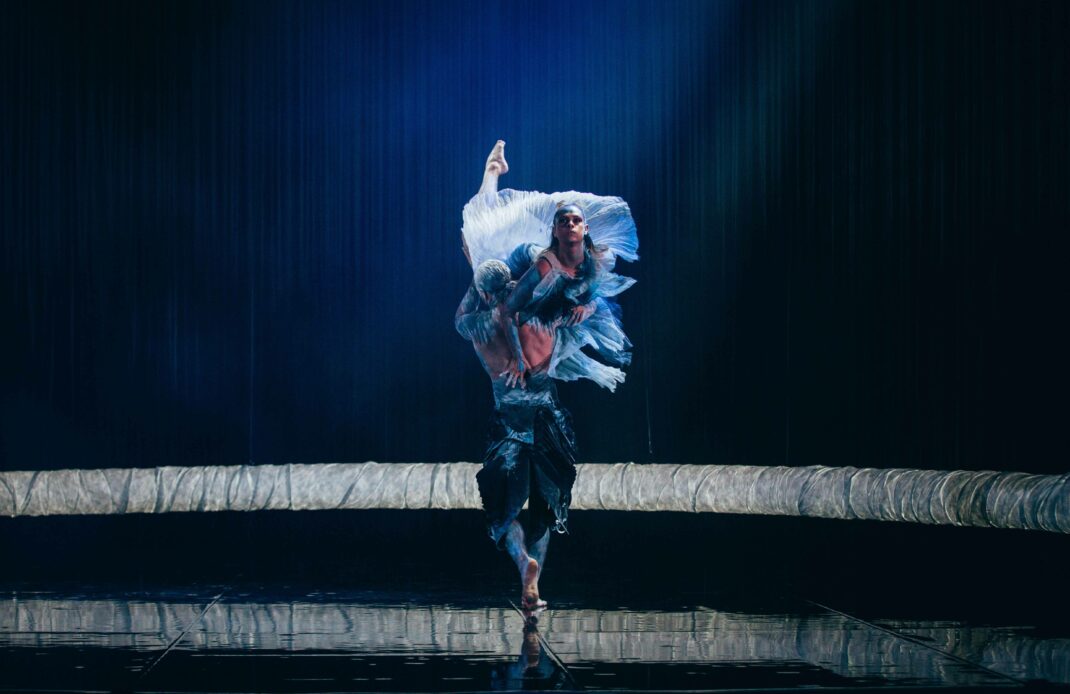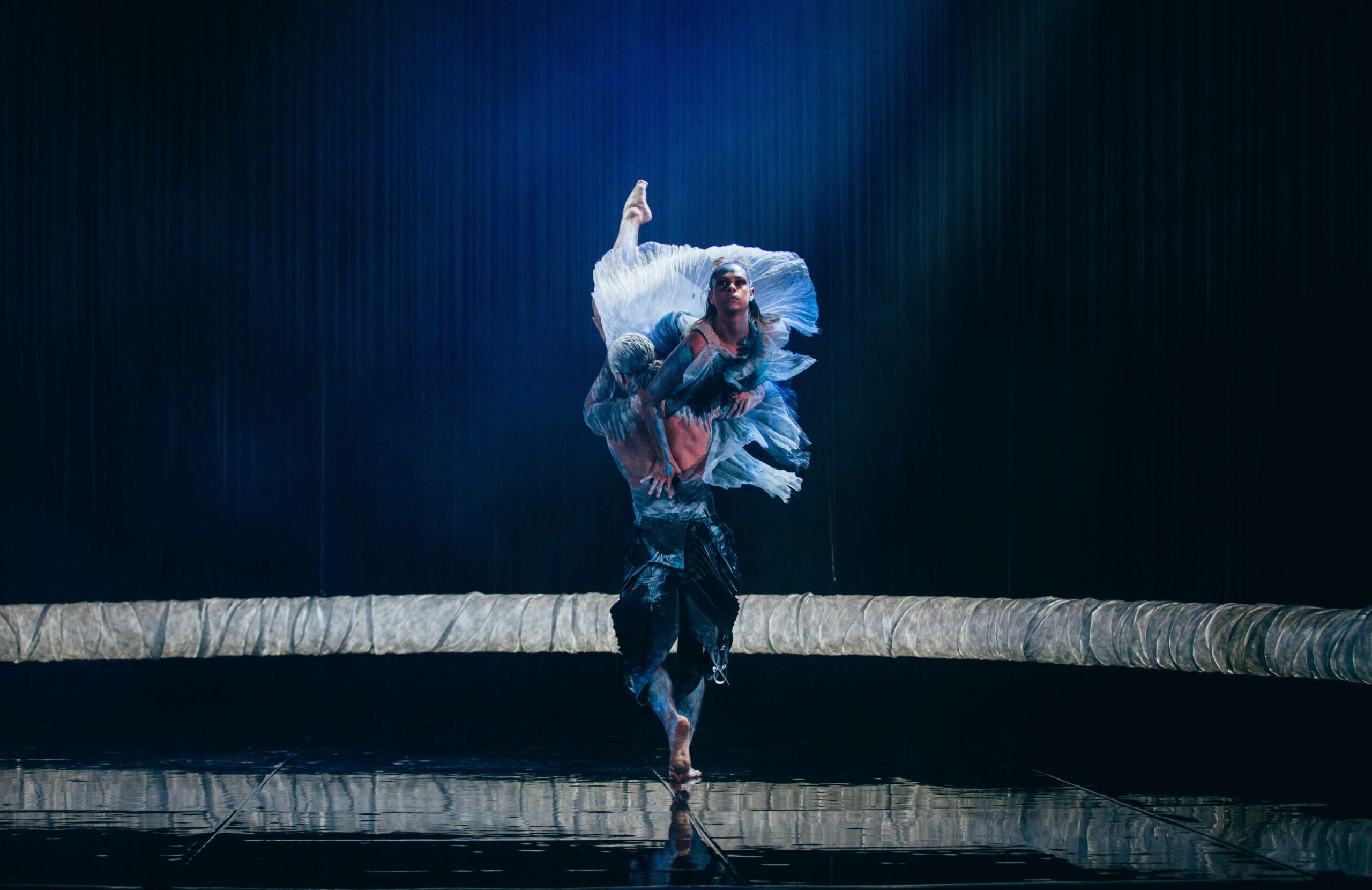20 July 2023. Canberra Theatre, Canberra Theatre Centre
With Yuldea, Bangarra Dance Theatre’s first production under the artistic directorship of Frances Rings, the company continues to present work that examines the experiences that Australia’s First Nations people have lived through. As Rings has written in the ‘Welcome’ section of the Yuldea program, ‘Yuldea reflects the truth-telling of the Indigenous experience in Australia and reminds us that there are two stories to the making of this country.’ The ‘two stories’ angle has been an outstanding feature of Bangarra productions since its inception and has contributed to the admiration audiences have had for the company over the years.
Yuldea is in four parts, ‘Supernova’, ‘Kapi (Water)’, ‘Empire’ and ‘Ooldea Spirit’. It tells the story of the Aṉangu people of the Great Victorian Desert and the Nunga of the Far West Region of South Australia. It focuses especially on the traditional cultural activities of the people of the regions, on the effects of colonisation including the building of the Trans-Australian Railway, and on the ability of traditional culture to survive. The title of the work, Yuldea, refers to a ‘soak’ or waterhole seen as an ‘epicentre of traditional life’.
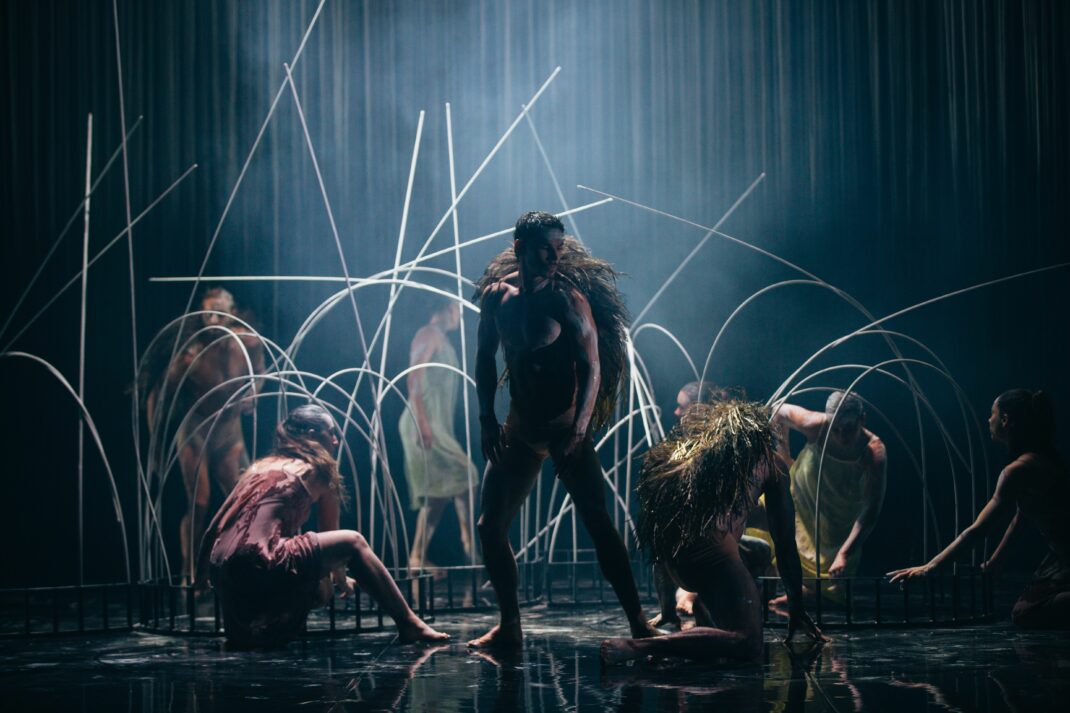
Choreographically, Yuldea presented the Bangarra style that has become familiar over the course of the company’s existence—the grounded movement, the turned up feet with legs bent sharply from the knee, tightly structured and strongly held group poses, bodies held upside down or at unusual angles in partnering moves, and so forth. But there were times in Yuldea when I was struck by the existence of moments that seemed based on ballet, both in some less grounded movement and recognisable balletic steps, and in the way the movement was structured in groupings that were less random in appearance and often performed in unison. It seemed a little like another version of the ‘two story’ angle.
Yuldea was beautifully danced by the whole company with a standout performance from Lillian Banks and Kallum Goolagong in an early duet.
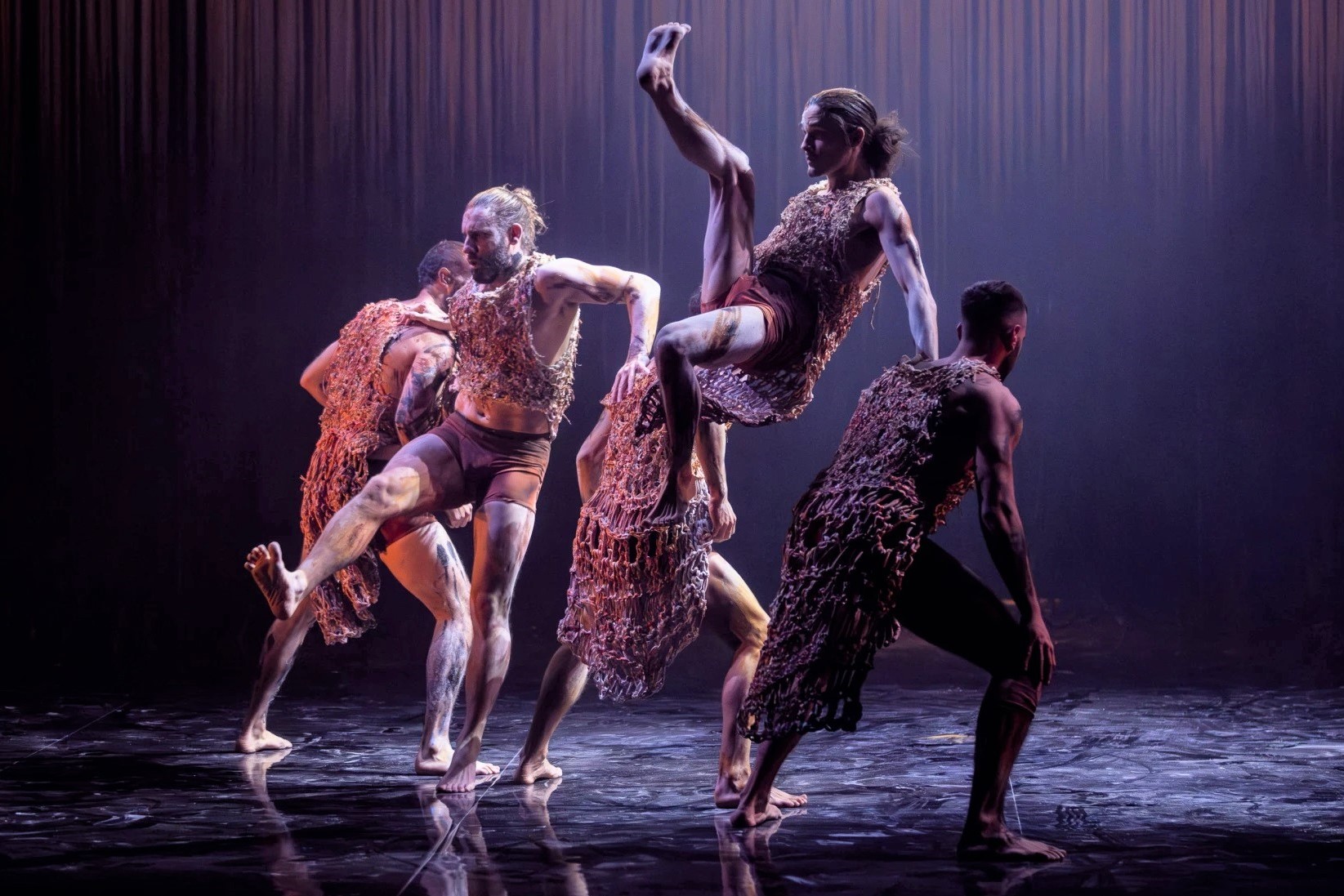
Yuldea continued the collaborative style of production that has characterised Bangarra presentations for decades. Jennifer Irwin’s costumes were as stunning as ever. Her use of fabric and layering of material, and the cut of her costumes that allows the costume to move freely (as if performing its own dance) were there in spades, as was her admirable addition of decorative items, including feathers, to various parts of the costume.
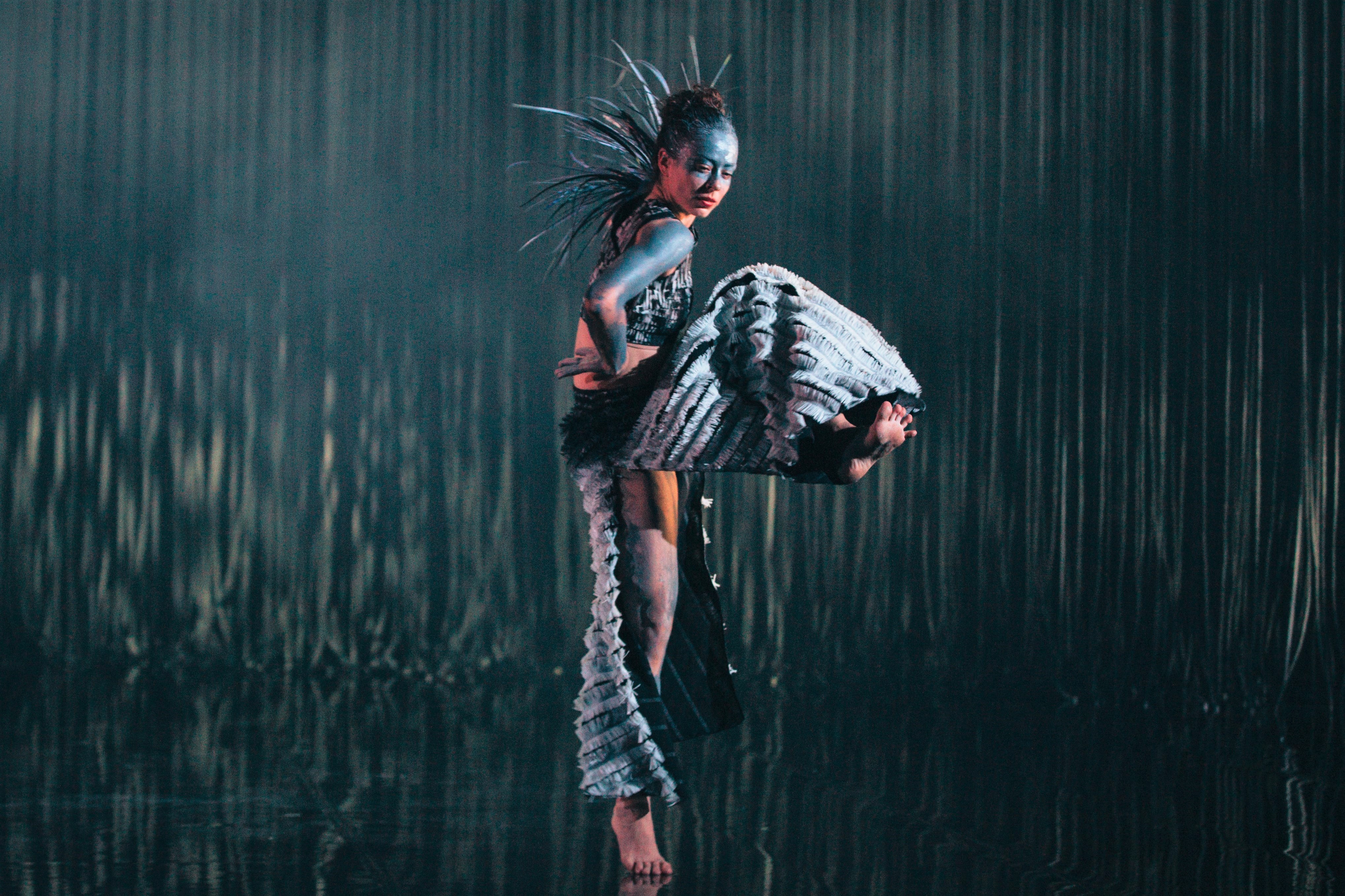
In terms of set design, Elizabeth Gadsby gave us something different from what we have seen from former resident designer Jacob Nash, who has now moved on to other activities. For me, Gadsby’s set was akin to a kind of architectural minimalism. It consisted of a semi-circular arrangement of ‘ceiling’ to floor strips of material (not sure what they were actually made from) through which the dancers made entrances and exits, and a semi-circular white item that hung in the air in front of the strips of material. The semi-circular shape of both items perhaps represented the shape of a waterhole? I’m not sure. Perhaps the white structure was the serpent, the ‘Steel Snake’ of the railway? The set, especially the strips of material, might have played a functional role but for me the set as a whole lacked a certain artistic vision and the thrill that such vision gives to audiences.
Music came from Leon Rodgers, the recipient of the 2021 David Page Fellowship, and Electric Fields. Lighting was by Karen Norris and there was in-depth cultural consultation with a range of people and groups.
Like most productions from Bangarra, especially those made over the last decade or so, Yuldea is a complex work and asks us to continue to think about many aspects of Australian life. Bangarra will, I feel sure, continue to be one of Australia’s foremost dance companies as it moves ahead with Frances Rings as its artistic director.
Michelle Potter, 23 July 2023
Featured image: Lillian Banks and Kallum Goolagong in ‘Kapi (Water)’ from Yuldea. Bangarra Dance Theatre, 2023. Photo: © Kate Longley
